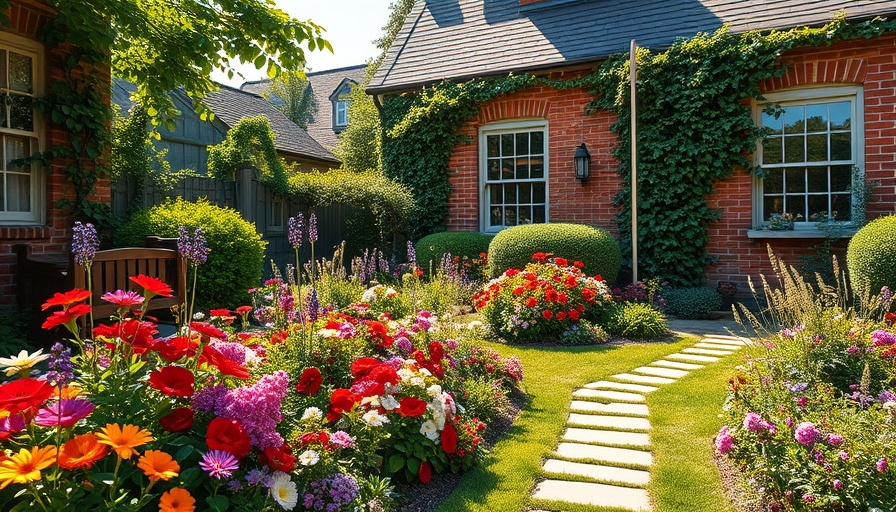
Discovering Urban Agriculture with Chloe Moore
In the midst of Asheville, North Carolina, where urban life intertwines with nature, lies Southside Community Farm, a beacon of hope and growth managed by Chloe Moore. This one-acre urban farm is not just a plot of land; it is a community hub dedicated to fostering food sovereignty, especially among historically Black communities.
Chloe's Journey: From Seeds to Community Impact
Chloe Moore—a queer, Black, and Borikua-Taino farmer, educator, and parent—fosters an intimate relationship between the land and the community. At Southside Community Farm, locals are invited to enjoy the fruits of the earth, quite literally. With a unique 'no payment and no questions asked' policy, the farm emphasizes access to fresh produce, bridging the gap between food availability and community needs.
From Garden Memories to Modern Practices
Chloe recalls her earliest memories in a garden, where she savored the sweetness of ripe cherry tomatoes, instilling a love for agriculture that carries on today. Her passion is echoed in the farm's approach to youth education, particularly through the cultivation of strawberries. These plants are not just delicious; they also serve as an entry point for children to experience the joys of fresh, homegrown foods, counteracting skepticism about outdoors and healthy eating.
Getting Inspired: Classic Reads and Modern Influences
For those seeking inspiration, Chloe frequently revisits Working the Roots by Michelle E. Lee, a treasure trove of traditional Black, land-based wisdom. This book reveals the significance of heritage in gardening practices, connecting readers not only to the soil but to their ancestors.
Furthermore, Chloe draws knowledge from contemporary voices in the field, including the Instagram account @seedingsovereignty, which shares invaluable insights about food justice and community-led agriculture. Social media platforms have become modern garden journals and classrooms, helping people of all backgrounds find inspiration in their own gardening journeys.
Designing with Intention: Lush, Diverse, and Welcoming
The aesthetics of Southside Community Farm can be summarized in Chloe’s words: lush, diverse, and welcoming. This philosophy resonates within the designs of the garden areas, which encourage exploration and learning. Spaces are not just about growing food but fostering community connections and showcasing the beauty of biodiversity. Anyone can meander through the orchard or find nourishment in the outdoor refrigerator stocked with fresh food, cultivating a sense of belonging.
Food Sovereignty: Why It Matters
Chloe’s farm is a response to the critical concept of food sovereignty, which emphasizes the right of people to healthy, culturally appropriate food produced through ecologically sound and sustainable methods. Understanding this practice is essential for appreciating the depth of the farm’s mission. It’s about more than just growing food; it’s about empowering communities to regain control over their food sources and fostering resilience against a food system that can often be oppressive.
Conclusion: Steps to Engage with Your Community's Landscape
The journey of urban farming epitomized by Chloe Moore serves as a reminder of the power of agricultural practices in community well-being. Anyone can contribute—whether through education, volunteering, or creating a backyard garden. Engage with your local urban farms, support community gardeners, and explore how you can make a difference in your local food landscape.
As you consider your next steps in home design or improvement, why not look into ways to engage with urban agriculture? Whether it’s planting your first seeds or supporting local community farms, the benefits are vast and rewarding.
 Add Row
Add Row  Add
Add 






Write A Comment